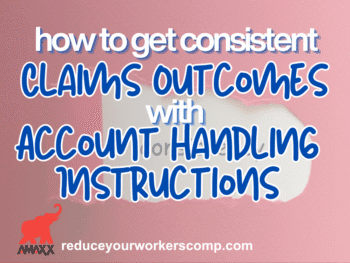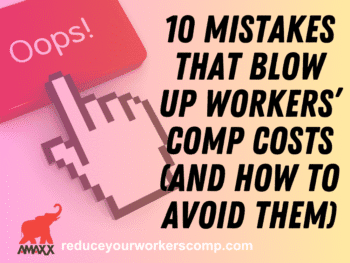Professional Employer Organizations (PEO) are companies that provide administrative services for their clients – other employers. These services include handling the functions normally done by the various administrative departments of the client employer including:
• Workers’ compensation insurance
• Recruiting and hiring
• Background checks
• Training and development
• Drug testing
• Health insurance
• Payroll administration
• Human resources activities
• Employee benefits
• Safety and risk management
• Taxes
The PEO will tailor their services to provide the combinations of services the client employer needs and/or selects.
There are currently over 700 PEOs operating in the United States. By outsourcing these administrative functions to the PEO, the client employer is able to focus on the core business, reducing the administrative cost to the client employer and lowering the cost of benefits provided to the employees. This also allows the client employer to offer a better package of benefits than the client employer could provide on their own.
A PEO can be utilized by just about any type of small business, but are prevalent in industries with a higher than average risk of loss, including:
• Construction
• Trucking
• Mills
• Landscapers
• Warehousing
• Temporary staffing agencies often use PEOs due to ever changing workforce.
If a part of the services requested by the employer, the PEO will also take on the role of recruiting and hiring employees. The primary reasons an employer would want the PEO to hire the employees and to lease them to the employer is for the PEO to be the employer of record for workers’ compensation purposes and for tax purposes. While the employee is working for the employer, the PEO is also considered the employer. This is commonly referred to as co-employment.
PEO Obtains Workers Compensation Insurance In Its Own Name
As the PEO is a co-employer, the PEO is able to obtain workers’ compensation insurance in its own name. This is legal because of the co-employment arrangement. There are several benefits with PEOs providing workers’ compensation coverage.
• By using economies of scale, the PEO is able to purchase workers’ compensation insurance at a lower cost than the small client employer can obtain.
• The PEO negotiates the cost of insurance for both its own employees and all the employees of the client employers.
• When selling their services, the PEO will promote how they improve the client’s cash flow by reducing or eliminating the down payments associated with the purchase of workers’ compensation insurance.
• The client employer often does not incur the finance charges they would have incurred if they had bought workers’ compensation insurance on their own.
• Some PEOs provide a pay as you go work comp program charging monthly work comp premiums and extending work comp coverage on a month to month basis.
• Large PEOs often provide their own workers’ compensation claims department (third party administrator) and administer the work comp claims. As a part of this arrangement, the PEO will require the client employers to participate in a return to work program to minimize the time off work and size of the work comp claims.
Safety programs are another service provided by PEOs.
• The client employer is responsible for administering the safety program provided by the PEO.
• The PEO will retain the right to perform safety inspections and to verify the client employer is providing a safe place for the employee to work.
• The safety programs benefit all of the PEO’s client employers by lowering the number of workers’ compensation claims for all members of the PEO.
• PEOs often turn down potential new clients who have a substandard safety record or who decline to accept the safety inspections and safety requirements of the PEO.
Employers who are considering joining a PEO should evaluate the PEO in the following areas:
• The cost of workers’ compensation coverage
• The insurer providing the workers’ compensation coverage for the PEO (A or higher rating with A.M. Best)
• The third party administrator if the workers’ compensation claims are not handled by the insurer
• Experience in the employer’s industry
• The risk management assistance
• The safety program
• The return to work program
• The financial stability of the PEO
• The cost of the other administrative functions selected by the employer
Professional Employer Organizations tout their ability to save money for the small business while relieving the small business owner of the day to day administrative functions of operating a business. Many small businesses join PEOs for the workers’ compensation savings. However, the cost of the other administrative functions provided by the PEO, and the cost savings of eliminating most of the administrative functions, should be considered by the employer in their PEO decision.
Author Rebecca Shafer, JD, President of Amaxx Risk Solutions, Inc. is a national expert in the field of workers compensation. She is a writer, speaker, and publisher. Her expertise is working with employers to reduce workers compensation costs, and her clients include airlines, healthcare, printing/publishing, pharmaceuticals, retail, hospitality, and manufacturing. She is the author of the #1 selling book on cost containment, Workers Compensation Management Program: Reduce Costs 20% to 50%. Contact:RShafer@ReduceYourWorkersComp.com.
Editor Michael B. Stack, CPA, Principal, Amaxx Risk Solutions, Inc. is an expert in employer communication systems and part of the Amaxx team helping companies reduce their workers compensation costs by 20% to 50%. He is a writer, speaker, and website publisher. www.reduceyourworkerscomp.com. Contact: mstack@reduceyourworkerscomp.com.
©2014 Amaxx Risk Solutions, Inc. All rights reserved under International Copyright Law.
WORK COMP CALCULATOR: http://www.LowerWC.com/calculator.php
MODIFIED DUTY CALCULATOR: http://www.LowerWC.com/transitional-duty-cost-calculator.php
WC GROUP: http://www.linkedin.com/groups?homeNewMember=&gid=1922050/
SUBSCRIBE: Workers Comp Resource Center Newsletter
Do not use this information without independent verification. All state laws vary. You should consult with your insurance broker, attorney, or qualified professional.
























